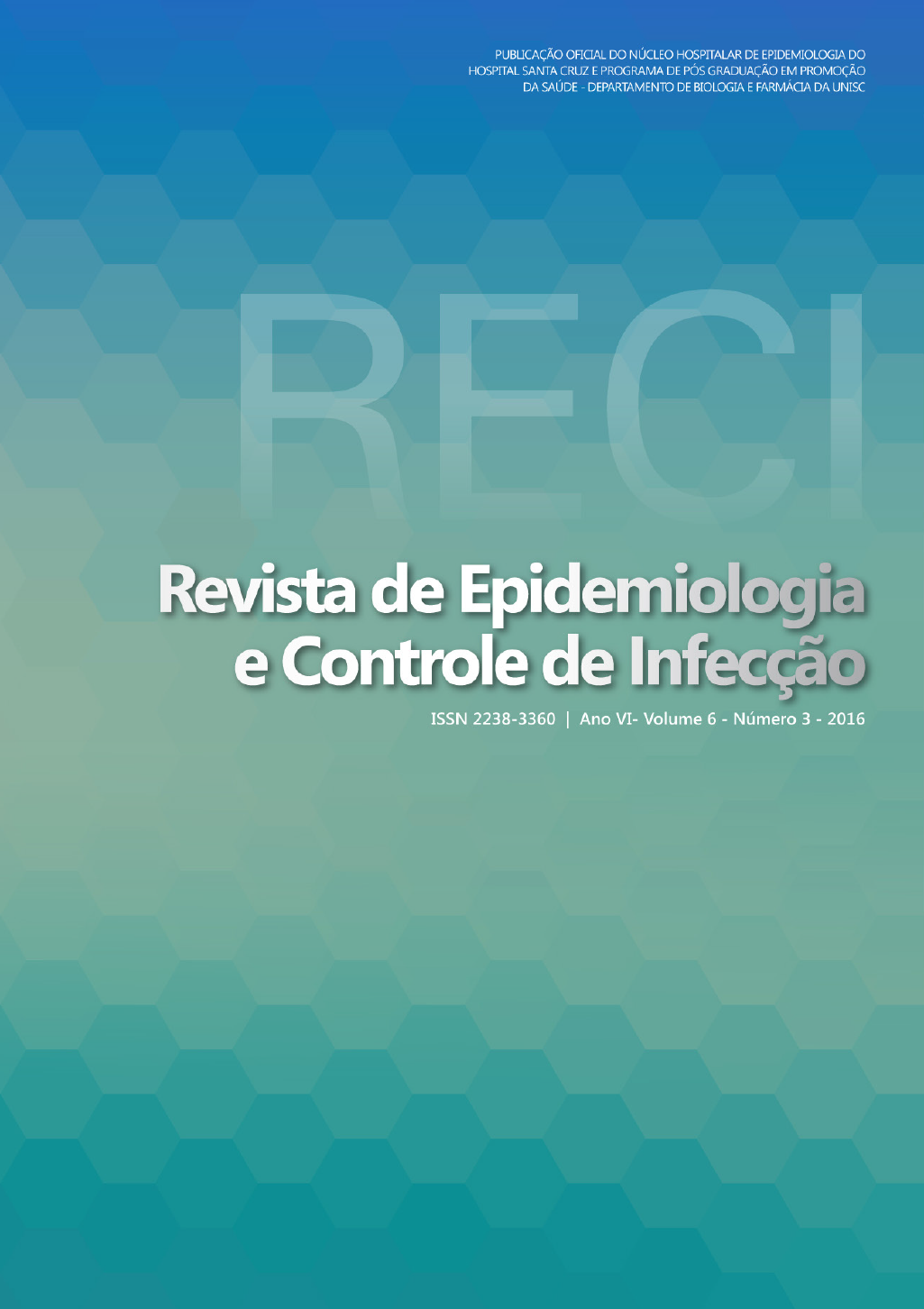Incidência de Candida spp. na mucosa oral de pacientes infectados pelo vírus da imunodeficiência humana (HIV) no município de Santo Ângelo -RS
DOI:
https://doi.org/10.17058/reci.v6i3.6556Resumen
Justificativa: Atualmente há um aumento das infecções fúngicas, especialmente em pacientes imunocomprometidos. Dentre os fungos causadores de infecções invasivas destacam-se as leveduras do gênero Candida, considerada marcador de progressão do HIV. A terapêutica antifúngica e diagnóstico são importantes para o tratamento de candidíase oral, devido à resistência atribuída a algumas espécies. Assim, destaca-se a importância de determinar a incidência de candidíase oral em pacientes portadores do vírus do HIV. Objetivo: Pesquisar a incidência de Candida spp em pacientes HIV positivos, as espécies, os fatores de virulência e a sensibilidade ao fluconazol. Metodologia: pesquisou-se a colonização da mucosa oral de pacientes HIV positivos com o auxílio de swab estéril e o cultivo em ágar Sabouraud Dextrose. Estudou-se a atividade de proteinase e fosfolipase. O teste de suscetibilidade foi realizado pelo método de disco difusão. Preencheu-se uma ficha com dados sócio-econômicos, clínicos e informações quanto as medicações e sintomatologias dos pacientes. Resultados: A amostra constituiu-se de 45 pessoas. A média de idade dos pacientes foi de 38 anos (±13,63). A taxa de colonização oral por Candida em pacientes HIV foi de 53,3%, destes, 95,83% pertencentes à espécie albicans. Os isolados apresentaram atividade positiva e fortemente positiva para fosfolipase e proteinase. No teste de suscetibilidade 25% dos isolados mostraram-se resistentes ao fluconazol. Conclusão: O diagnóstico precoce da candidíase em pacientes infectados pelo HIV é fundamental tanto para o tratamento imediato, quanto para melhorar a sua qualidade de vida, uma vez que a candidíase é uma lesão bucal muito frequente nesta população.Descargas
##submission.downloads##
Publicado
Cómo citar
Número
Sección
Licencia
The author must state that the paper is original (has not been published previously), not infringing any copyright or other ownership right involving third parties. Once the paper is submitted, the Journal reserves the right to make normative changes, such as spelling and grammar, in order to maintain the language standard, but respecting the author’s style. The published papers become ownership of RECI, considering that all the opinions expressed by the authors are their responsibility. Because we are an open access journal, we allow free use of articles in educational and scientific applications provided the source is cited under the Creative Commons CC-BY license.


